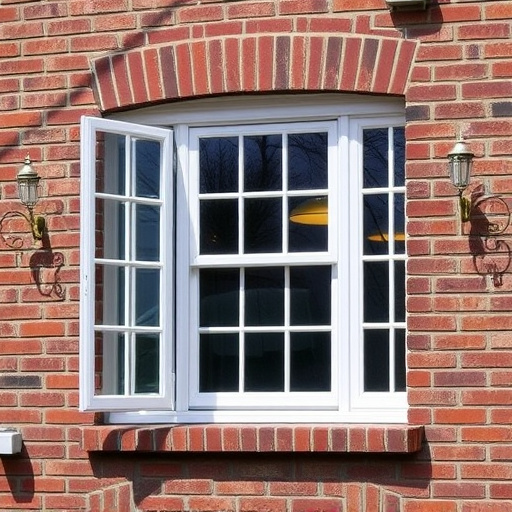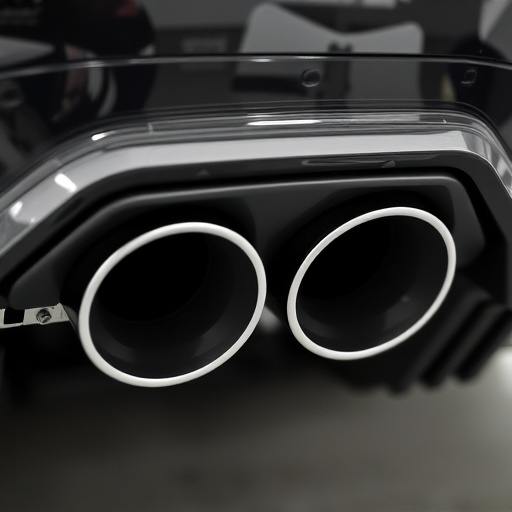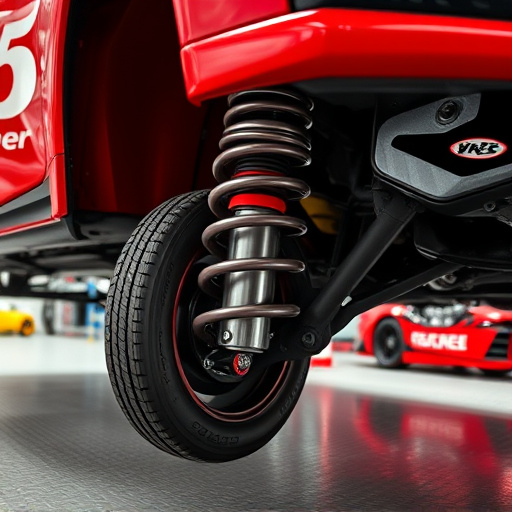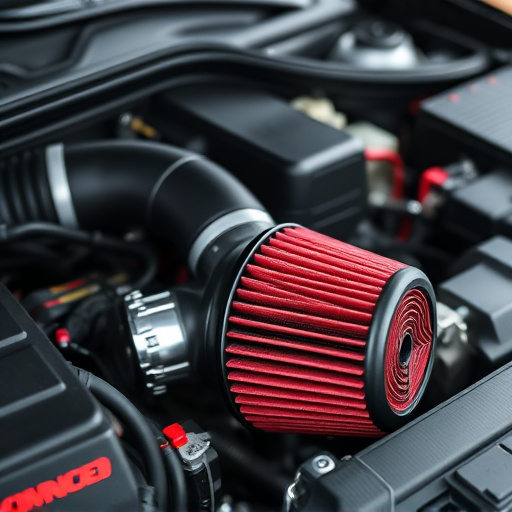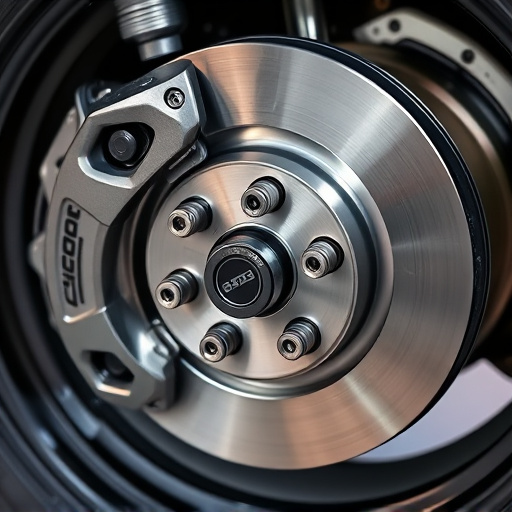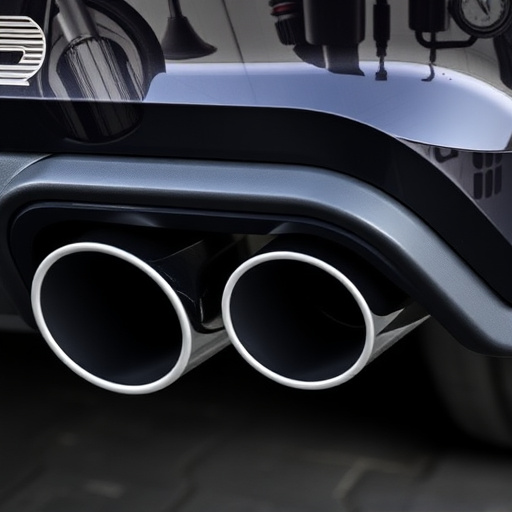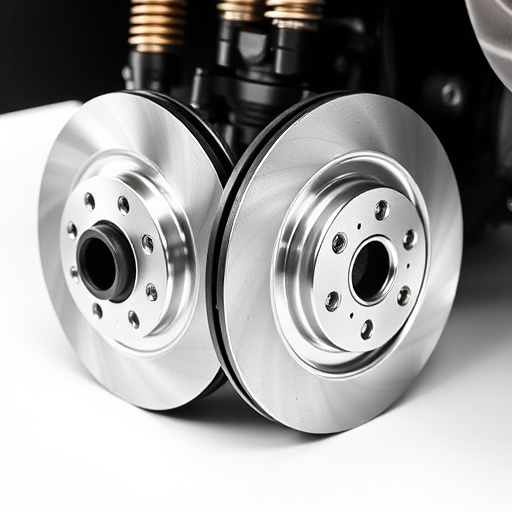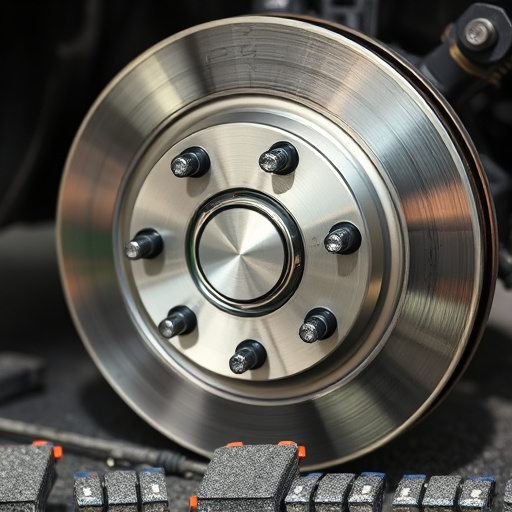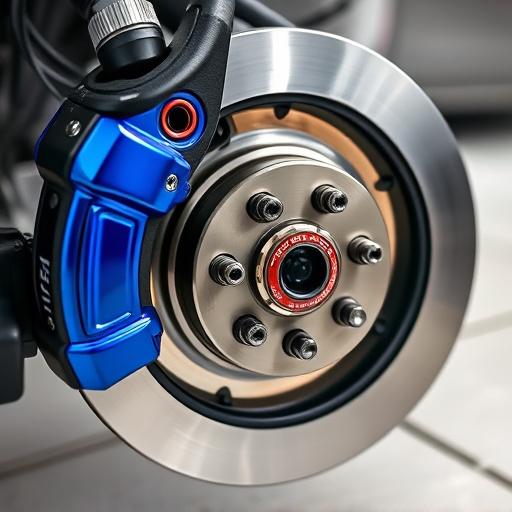The catalytic converter is a crucial component in modern vehicles' exhaust systems, reducing harmful pollutants into less toxic substances for environmental compliance and vehicle safety. Regular maintenance and timely replacements are essential due to extreme temperatures and corrosive substances. When replacing a catalytic converter, mechanics consider its interaction with air intake, exhaust mufflers, and other brake components to ensure optimal performance, minimal environmental impact, and prevent future issues. The cost varies based on vehicle make/model, part type, labor rates, and complex systems.
The catalytic converter, a vital component of your vehicle’s exhaust system, plays a crucial role in reducing harmful emissions. This essential part ensures your car meets environmental standards by facilitating the chemical reaction that converts toxic gases into less harmful substances. This article delves into the factors influencing the cost of replacing your catalytic converter, offering guidance on navigating this process effectively. From understanding converter types to exploring cost-saving strategies, you’ll discover key insights for a more informed decision.
- Understanding Catalytic Converters and Their Function
- – What is a catalytic converter?
- – Its role in a vehicle's exhaust system
Understanding Catalytic Converters and Their Function
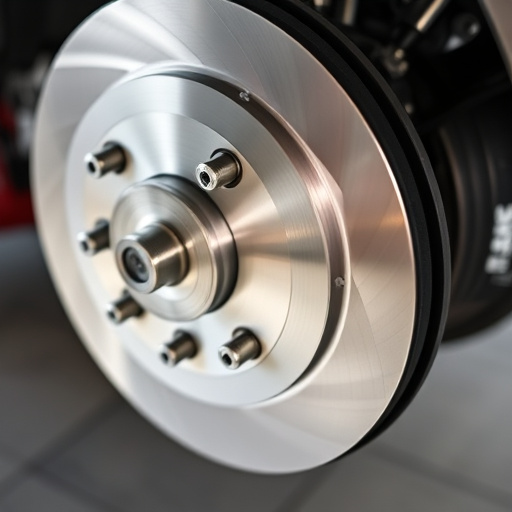
A catalytic converter is a critical component in modern vehicles’ exhaust systems. Its primary function is to reduce harmful pollutants and gases emitted from the engine, transforming them into less toxic substances. This process is essential for environmental compliance and ensuring vehicle safety. The converter works by facilitating a chemical reaction that breaks down pollutants, primarily carbon monoxide, nitrogen oxides, and hydrocarbons, into more benign compounds like carbon dioxide, water vapor, and nitrogen gas.
This component plays a vital role in maintaining engine performance and efficiency while also protecting the environment. Its replacement is often necessary due to wear and tear or damage caused by factors such as extreme temperatures, road conditions, and exposure to corrosive substances. When considering a catalytic converter replacement, understanding its interaction with other essential systems like air intake and exhaust mufflers is crucial. Regular maintenance and timely replacements are key to ensuring optimal vehicle performance and minimizing environmental impact.
– What is a catalytic converter?
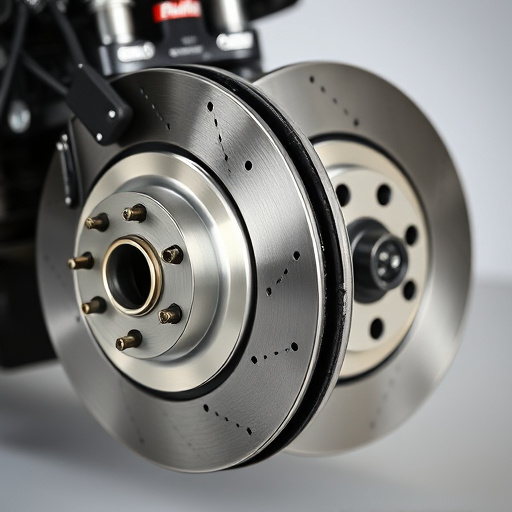
A catalytic converter is a critical component in modern vehicles designed to reduce harmful emissions from the exhaust system. This device works by facilitating a chemical reaction that converts toxic gases, such as carbon monoxide and nitrogen oxides, into less harmful substances like water and carbon dioxide. It’s an essential part of every vehicle’s emission control system, ensuring that cars meet environmental standards for air quality. When considering catalytic converter replacement, understanding its role in maintaining vehicle performance and environmental sustainability is crucial.
The cost of replacing a catalytic converter can vary widely based on several factors. These include the make and model of the vehicle, the complexity of removal and installation, the availability of original equipment (OEM) or aftermarket parts, and labor rates at your service center. Additionally, some vehicles have multiple converters, especially in larger engines or models with advanced emission control systems, which can impact the overall catalytic converter replacement cost. Other considerations include the condition of other brake components and the need for additional modifications to ensure optimal vehicle performance and emissions compliance.
– Its role in a vehicle's exhaust system
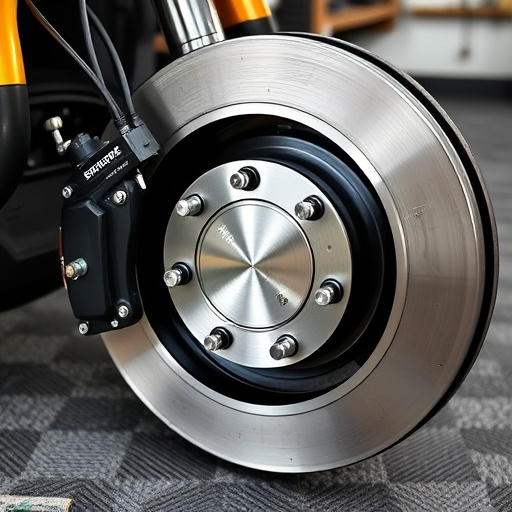
The catalytic converter is a vital component within a vehicle’s exhaust system, playing a crucial role in reducing harmful pollutants and emissions. Its primary function is to facilitate a chemical reaction that converts toxic gases, such as carbon monoxide and nitrogen oxides, into less harmful substances like water vapour and carbon dioxide. This process not only improves air quality but also ensures the engine operates efficiently, contributing to better fuel economy.
When considering a catalytic converter replacement, it’s essential to understand that this component interacts with various other parts of the vehicle, including suspension components and brake components. High-performance catalytic converters might require upgrades to these systems to ensure optimal performance and prevent potential compatibility issues. Thus, during the replacement process, mechanics often assess the overall health of these related components as part of a broader maintenance strategy.
When considering a catalytic converter replacement, several factors come into play. The cost can vary significantly based on the make and model of your vehicle, as well as whether you opt for a genuine OEM part or a high-quality aftermarket alternative. Additionally, labor costs and regional market prices should be taken into account. Regular maintenance and timely replacements can help prevent costly repairs down the line, ensuring your vehicle’s exhaust system continues to function optimally.



